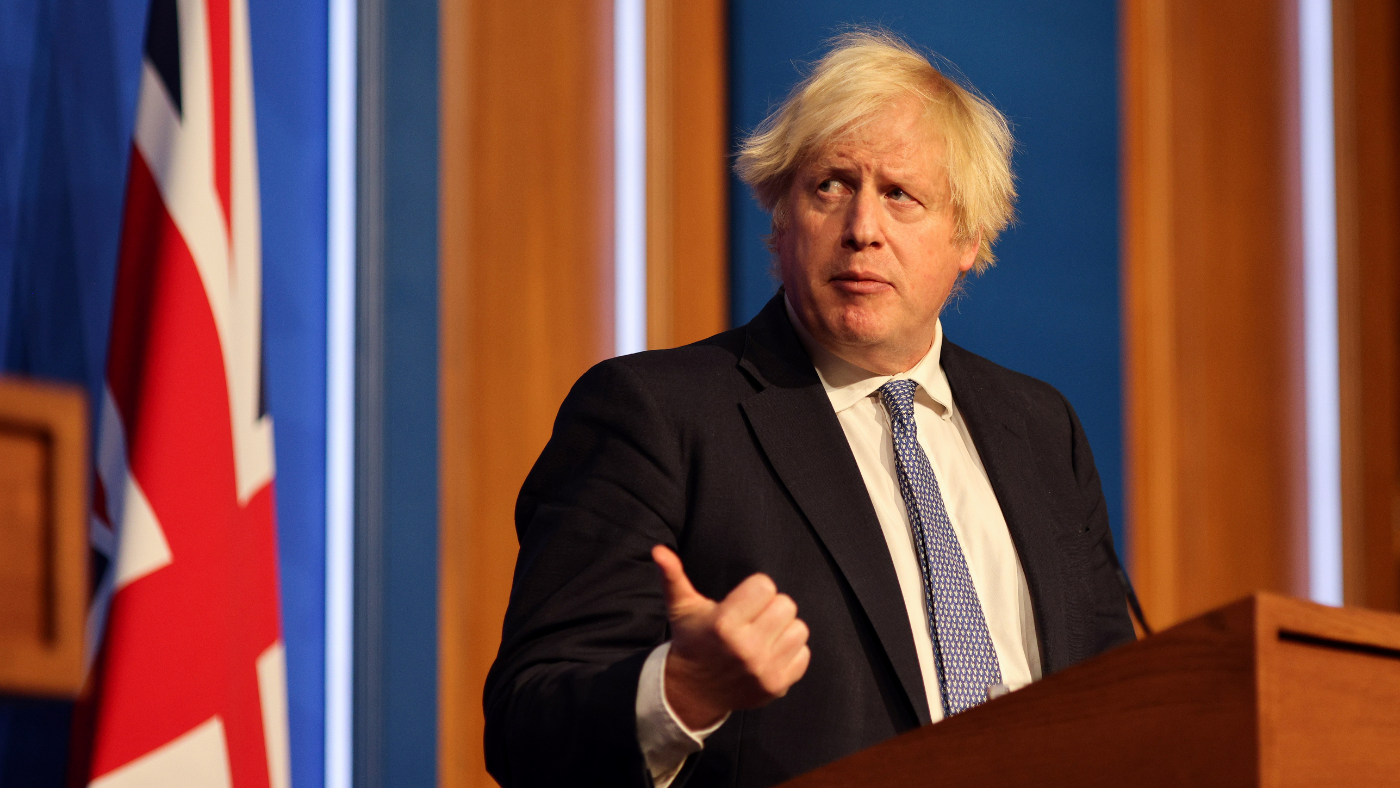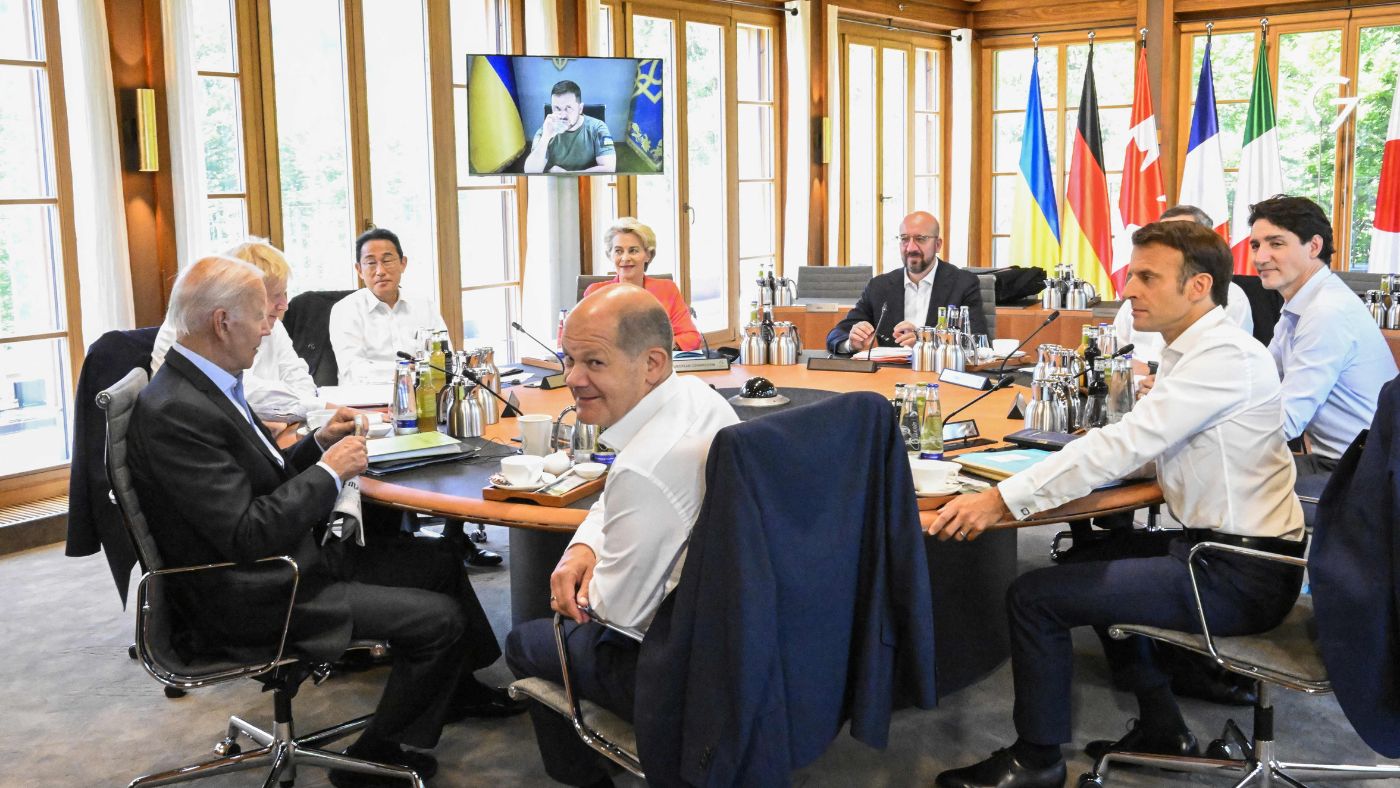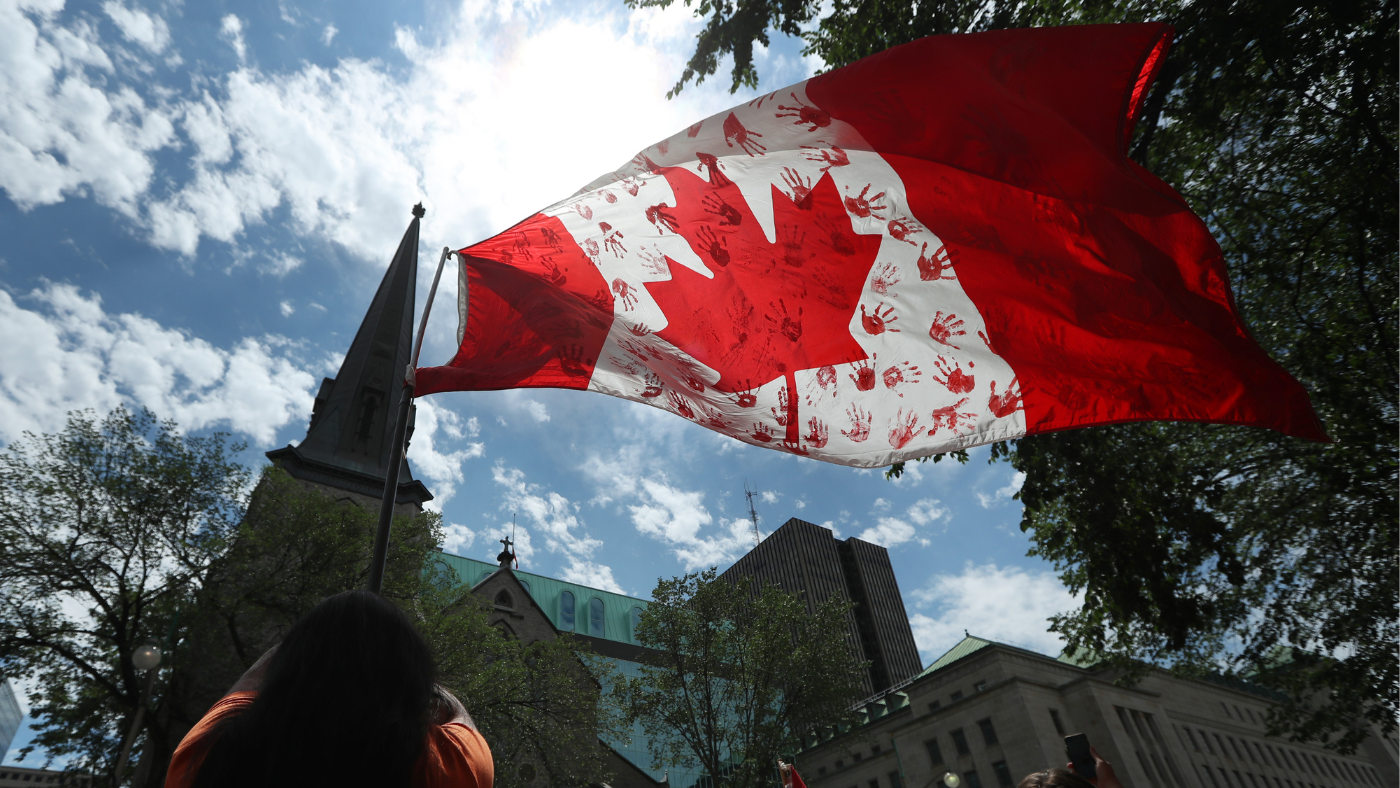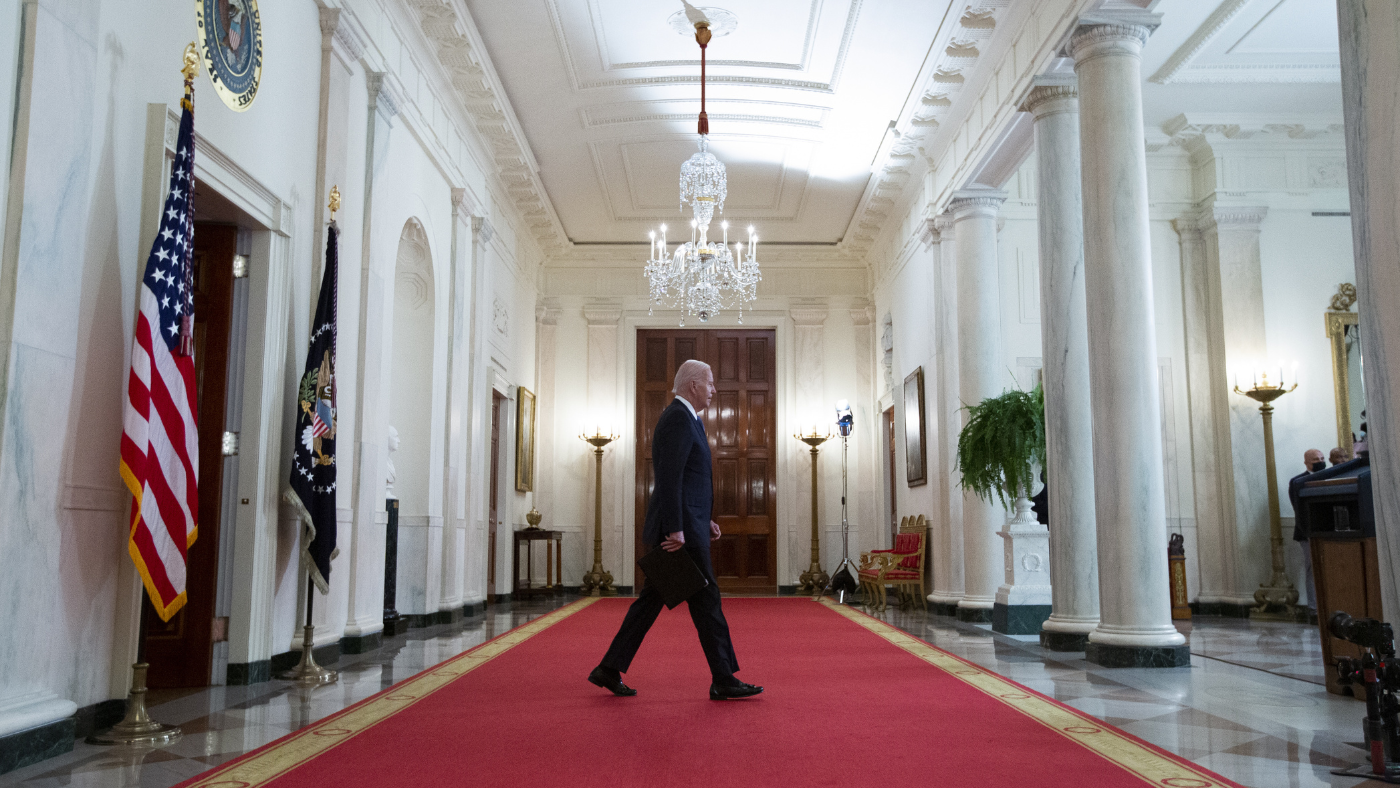‘What next in the government’s Advent calendar of dishonesty and hypocrisy?’
Your digest of analysis from the British and international press

- 1. Tories can’t let Johnson brazen this one out
- 2. Women need to be able to trust the police – how does Britain get to that point?
- 3. We all know what Boris Johnson’s emergency address was really about – and it wasn’t Covid boosters
- 4. We’ve failed our planet. This is an SOS
- 5. In defence of boredom
A free daily email with the biggest news stories of the day – and the best features from TheWeek.com
You are now subscribed
Your newsletter sign-up was successful
1. Tories can’t let Johnson brazen this one out
Clare Foges for The Times
on replacing the PM
“What next in the government’s Advent calendar of dishonesty and hypocrisy?” asks Clare Foges in The Times. After weeks of stories relating to “alleged lockdown-flouting” by the residents of No. 10, the public are now waiting “with bated breath” for “the uber-revelation behind big door 24”. Boris Johnson “will be hoping that the big vaccination push announced yesterday will shove partygate from centre stage, but this is optimistic given the cut-through”. The question now is whether “MPs wish to repair the damage done”, Foges says. The prime minister “is careless with important things, such as the truth and the good word of a prime minister”, and “doesn’t do remorse”. During “television interviews you will see that when presented with his own failures or scandals, he struggles to restrain a roll of the eyes”. A glance over his administration’s record is akin to “surveying the wreckage that is the British government’s reputation”, she adds. His MPs “must move sooner rather than later to replace the prime minister”. After all, “Britain deserves better”.
The Week
Escape your echo chamber. Get the facts behind the news, plus analysis from multiple perspectives.

Sign up for The Week's Free Newsletters
From our morning news briefing to a weekly Good News Newsletter, get the best of The Week delivered directly to your inbox.
From our morning news briefing to a weekly Good News Newsletter, get the best of The Week delivered directly to your inbox.
2. Women need to be able to trust the police – how does Britain get to that point?
Harriet Wistrich for The Guardian
on institutional failings
“After the murder of Sarah Everard by a serving police officer earlier this year, a dam burst,” says Harriet Wistrich in The Guardian. “Women came out on to the streets of Britain to protest against male violence, only to be met with police violence.” According to the director of the Centre for Women’s Justice, “that dam is still flooding”, with at least 133 women in the UK dying “at the hands of a man in 2021 so far”. Meanwhile, “countless more will have taken their own lives as a consequence of male violence”. “For the first time in living memory, tackling the pandemic of violence against women and girls (VAWG) is high on the political agenda,” she adds. But “there is growing pressure to make VAWG part of the strategic policing requirement – which would bring it in line with other serious crimes such as organised crime and terrorism”. “Only when there is an understanding of the structural inequalities between men and women” will any “real change” in policing occur, Wistrich warns. “In the meantime, we will keep fighting.”
A free daily email with the biggest news stories of the day – and the best features from TheWeek.com
3. We all know what Boris Johnson’s emergency address was really about – and it wasn’t Covid boosters
Stephen Bush for The New Statesman
on reading between the lines
“The problem with television these days is it’s all just repeats,” says Stephen Bush in The New Statesman, citing Boris Johnson’s use of a “televised address to urge everybody to get a third coronavirus jab in order to minimise the risk to healthcare capacity from the new Omicron variant”. Viewers might have been wondering what “the practical difference” was between last night’s speech and the coronavirus announcements last week. The answer lies in “what has changed” since, namely that “the Mirror’s Pippa Crerar has revealed that Boris Johnson himself chaired a Christmas Zoom quiz last December”. The prime minister is “safe” so long as “a critical mass of Conservative MPs believe that he is their best electoral asset”, he adds. But Johnson has “achieved a rare feat” in “uniting Labour and Conservative MPs, lockdown sceptics and Zero Covid-ers” behind the suggestion that his “statement was really about keeping Sunday’s Mirror story off today’s front pages”.
4. We’ve failed our planet. This is an SOS
Kathleen Kingsbury for The New York Times
on the climate catastrophe
“So many of the conversations about global warming focus on the direst consequences, projected far into the future,” says Kathleen Kingsbury in The New York Times. “But the truth is that we are already living in a world that is being transformed by climate change,” she warned, adding that “every single country on Earth is feeling its effects – today”. “Images of fires and floods on an increasingly uninhabitable planet if the governments of the world – and especially those of the United States, China and the other leading greenhouse gas emitters – fail to curb their use of fossil fuels” have failed to spur action, the paper’s opinion editor says. But the need for a “call to action” has become “even more necessary as we watched the Glasgow [Cop26] summit come and go with high hopes and, ultimately, tepid actions”. Describing the paper’s “Postcards From a World on Fire” project, she adds that while some climate crisis stories “may seem small, like an ancient drawing flaking off a cave wall in Indonesia”, when taken together they “tell a story” about “the most existential issue facing the planet today”.
5. In defence of boredom
Jane Shilling for The Telegraph
on whiling away time
“Some years ago, extravagant claims were made for the beneficial effects on children’s intelligence of listening to Mozart,” writes Jane Shilling in The Telegraph. But increasingly, she finds herself “wondering what might be the long-term effects of daily exposure from infancy to The Archers’ theme tune, Barwick Green”. This is partly because of “the cyclical nature of events” in the BBC radio drama, which match “the inexorable regularity of the farming year”. The show’s theme tune “was the leitmotif” of her “childhood teatimes”, and even now she finds herself “reabsorbed into the flow of rural fantasy” when she tunes in for an episode. “In interesting times such as these, a therapeutic mild ennui is a precious thing,” she adds. It serves to help us “cherish the prosaic” and “remind ourselves of the value of the everyday”.
-
 Triangle-headed aliens touched Goldie Hawn
Triangle-headed aliens touched Goldie HawnTall Tales And other stories from the stranger side of life
-
 Boris Johnson shocks UK by resigning from Parliament
Boris Johnson shocks UK by resigning from ParliamentSpeed Read
-
 Bees delay flight for three hours
Bees delay flight for three hoursfeature And other stories from the stranger side of life
-
 ‘The UK’s malaise will not end with the Prime Minister’s exit’
‘The UK’s malaise will not end with the Prime Minister’s exit’Instant Opinion Your digest of analysis from the British and international press
-
 ‘Police tactics are not getting worse, they are simply being filmed’
‘Police tactics are not getting worse, they are simply being filmed’Instant Opinion Your digest of analysis from the British and international press
-
 ‘G7 leaders missed a golden opportunity’
‘G7 leaders missed a golden opportunity’Instant Opinion Your digest of analysis from the British and international press
-
 ‘It takes some soul searching to celebrate Canada Day’
‘It takes some soul searching to celebrate Canada Day’Instant Opinion Your digest of analysis from the British and international press
-
 ‘Breakthrough on abortion rights could be there if Biden reaches for it’
‘Breakthrough on abortion rights could be there if Biden reaches for it’Instant Opinion Your digest of analysis from the British and international press

